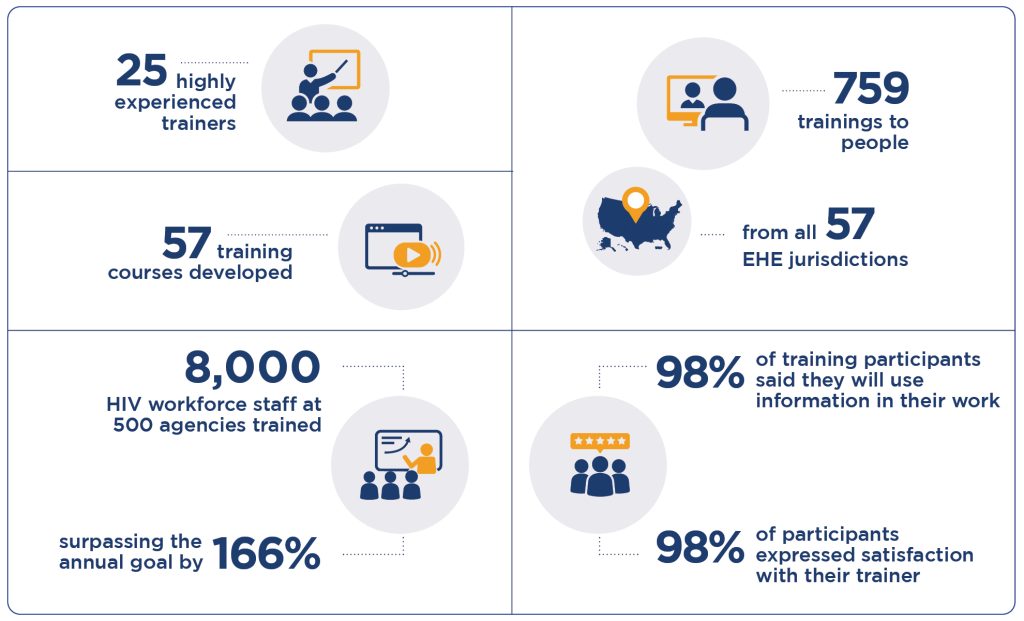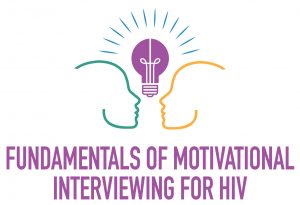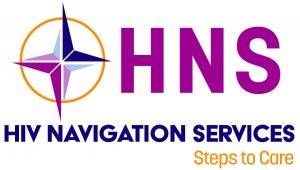The NHLC provides training and resources to help the HIV prevention workforce reduce new HIV infections by implementing interventions that are evidence based and supported by the U.S. Centers for Disease Control and Prevention (CDC).
Approximately 1.2 million people are living with HIV in the U.S., and that number increases by about 35,000 every year. To meet the federal Ending the HIV Epidemic in the U.S. goal of reducing new HIV infections in the U.S. by 90 percent by 2030, community-based organizations, health departments, and healthcare organizations need access to highly successful evidence-based interventions and public health strategies to diagnose, treat, and prevent HIV, as well as respond to HIV outbreaks. It is essential that organizations receive comprehensive training on these interventions in order to implement them well and ensure that they are effective at decreasing HIV rates.
The initiative
The National HIV Learning Center (NHLC) helps ensure that the HIV prevention workforce has access to high-quality training, technical assistance, and resources that will help them diagnose, treat, and prevent HIV and respond to HIV outbreaks in order to help reduce HIV infections nationally.
Our team of experienced trainers provides in-person and virtual trainings to help agencies deliver interventions. As the HIV landscape evolves, the CDC identifies new interventions and strategies to reduce HIV infection. Our instructional designers and content experts design, develop, and package the new and adapted interventions, accompanying training curricula, implementation manuals, training-of-trainer programs, and promotional material. Once materials are developed, our training teams deliver the in-person and/or live virtual training to support agencies with implementation and delivery. NHLC training topics include HIV testing in nonclinical settings, HIV testing in retail pharmacies, HIV navigation services, motivational interviewing, social network strategies, and many others.
The impact
This project started in 2019 and has reached more than 8,000 participants, increasing the number of providers and agencies with knowledge and skills to implement CDC-supported, evidence-based interventions and public health strategies. The NHLC helps improve organizations’ understanding of interventions and strategies that need to be in place in order to reduce new HIV infections and meet the federal government’s Ending the HIV Epidemic goals.

Project funder and key partners
U.S. Centers for Disease Control and Prevention (CDC), National Center for HIV/AIDS, Viral Hepatitis, STD and TB Prevention

 Course Description
Course Description Course Description
Course Description Course Description
Course Description

